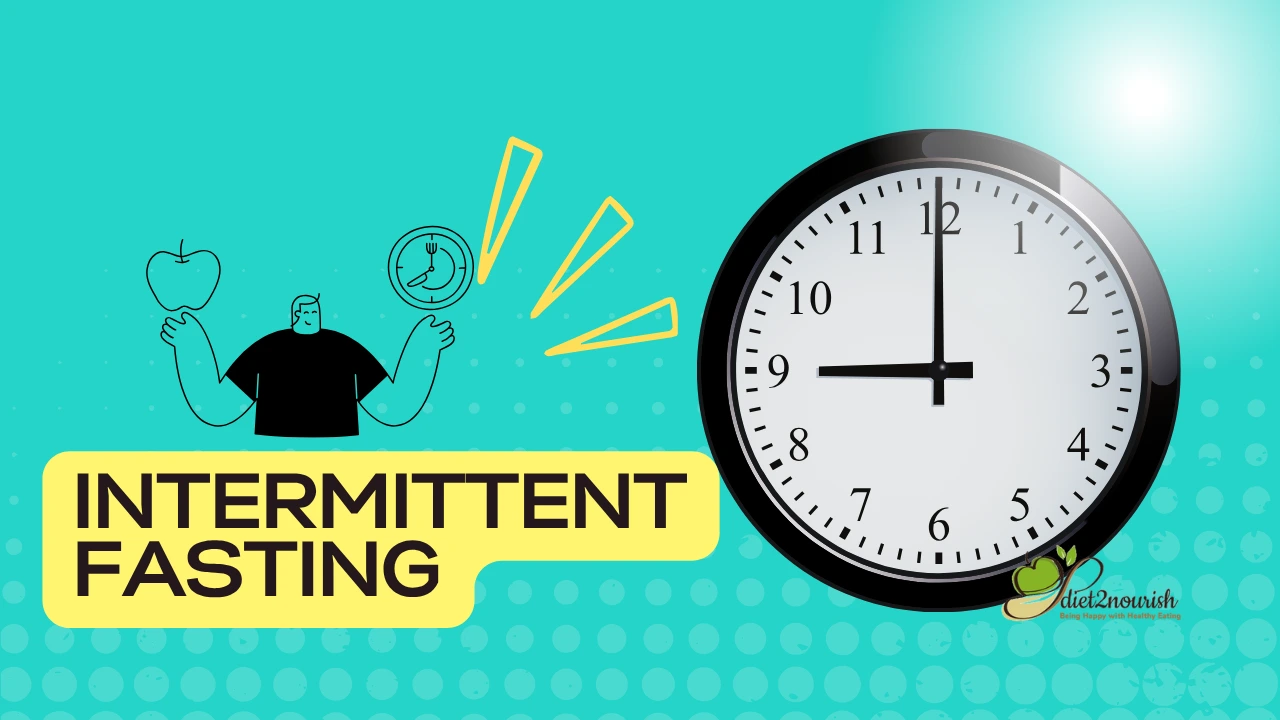Intermittent Fasting Diet Plan Indian
Forget the toxic ways to lose fat and switch To an intermittent fasting diet plan Indian. It is the best way to shake off those extra bags on your body. In this case, you have an eating window. Here, you can eat good food. Then, you have a fasting window. In this, you have to fast or not eat anything. The research says, it is a great way to lose fat while nourishing your body. In addition, fasting has a number of perks. It can help you in many ways apart from losing weight. Get to know all of them here!
As per experts, fasting is good for insulin sensitivity. It can help your cells repair, and boost brain function. You can set up your fasting and eating Durations as per your choice. It will be your way to your dream body with good food.
What is Intermittent Fasting?
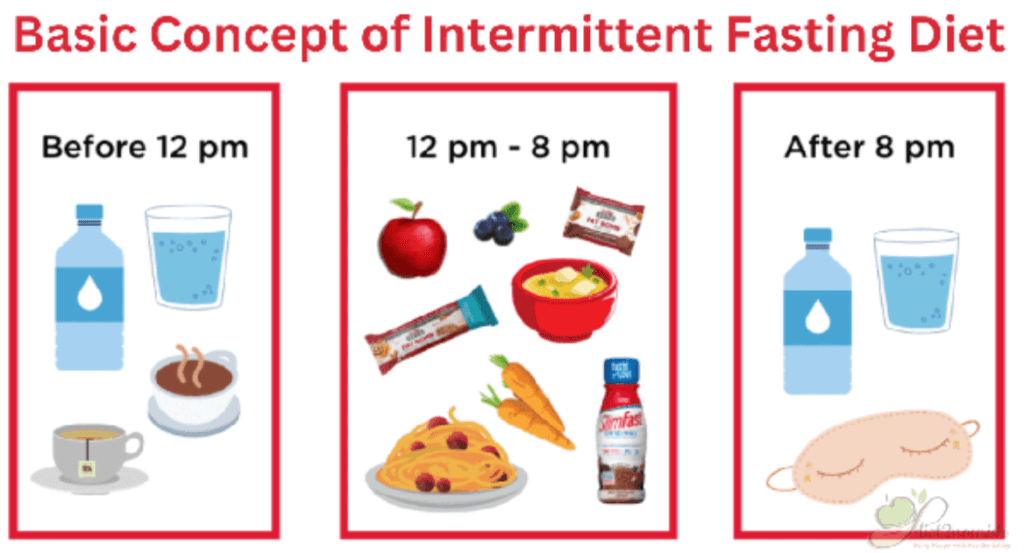
Intermittent fasting diet plan Indian is all you need. It has periods of fasting and eating. You can rather call it an eating pattern instead of a strict diet. During the fasting periods, you do not eat calories. This allows your body to enter a fasting state. It will help you burn fat.
One such plan is the 16:8 method. Here, you fast for 16 hours. Then, you can have an 8-hour eating window. Another one is the 24-hour fast. You have to do it twice a week. The entire concept revolves around taking fasting breaks after eating. It will help you stay in shape and eat good. You have to avoid some foods. This is because they can mess up your calorie count.
Methods of Intermittent Fasting
You can learn about the best Intermittent fasting diet plan methods here.
● 16:8 Intermittent fasting
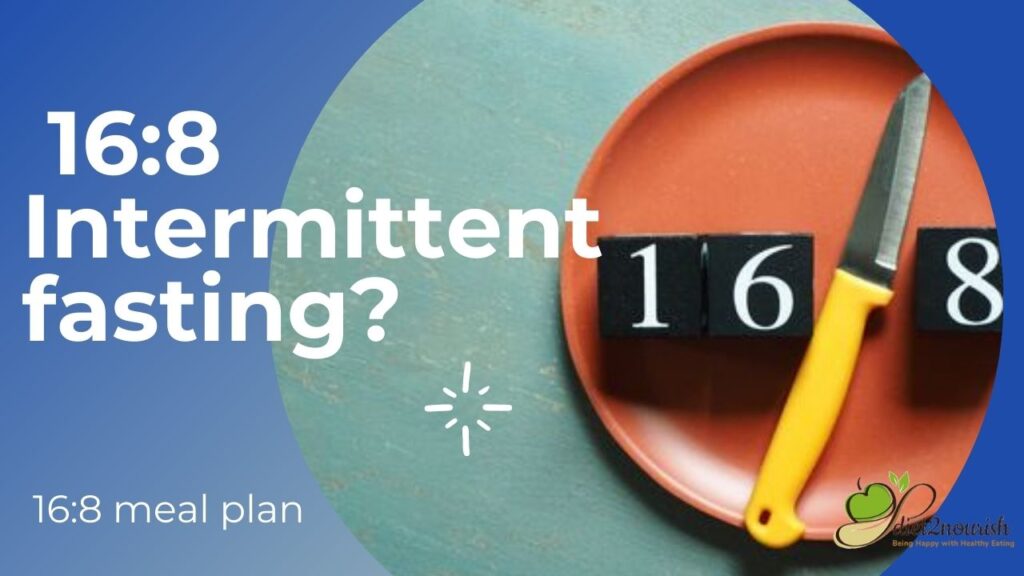
This is also called the Lean gains protocol. According to this intermittent fasting diet plan you have to skip breakfast and till 8 hours you should restrict eating duration. For example, if you eat between 1 to 9 pm but then you will not eat for 16 hours.
● 5:2 diet
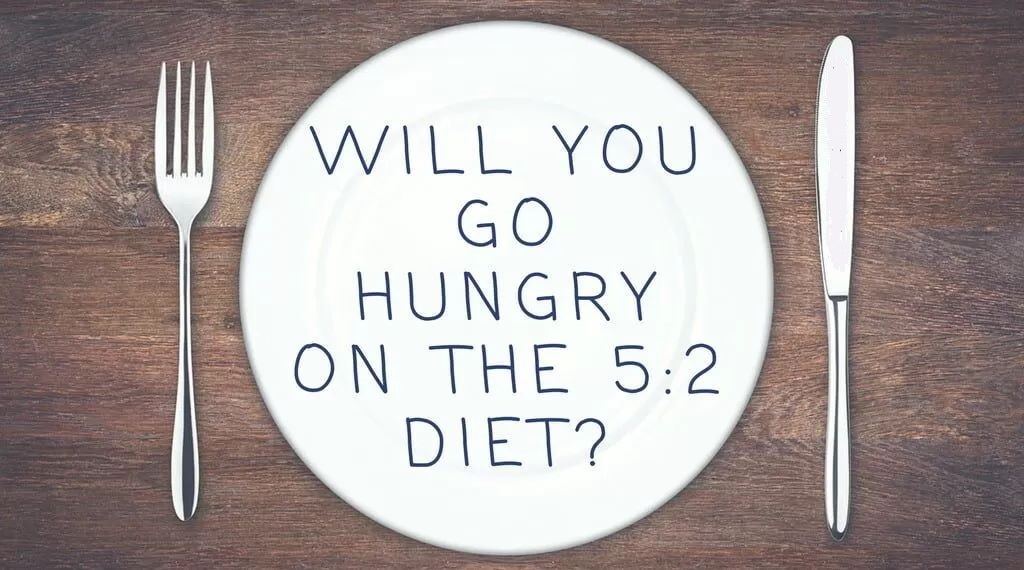
As per this, you have to eat for five days straight. Then, your calorie intake should be from 500 to 600 for two days in the week.
● Eat, fast, eat
As per this plan, you have to fast for 24 hours, once or twice a week. Then eat regularly on non-fasting days. With this, you can reduce your calorie intake. This will lead to weight loss. Don’t eat fast food and stick to your eating method. This kind of diet plan is because it’s more sustainable, simple, and easy to follow.
Know the Benefits of Intermittent Fasting Diet Plan Indian
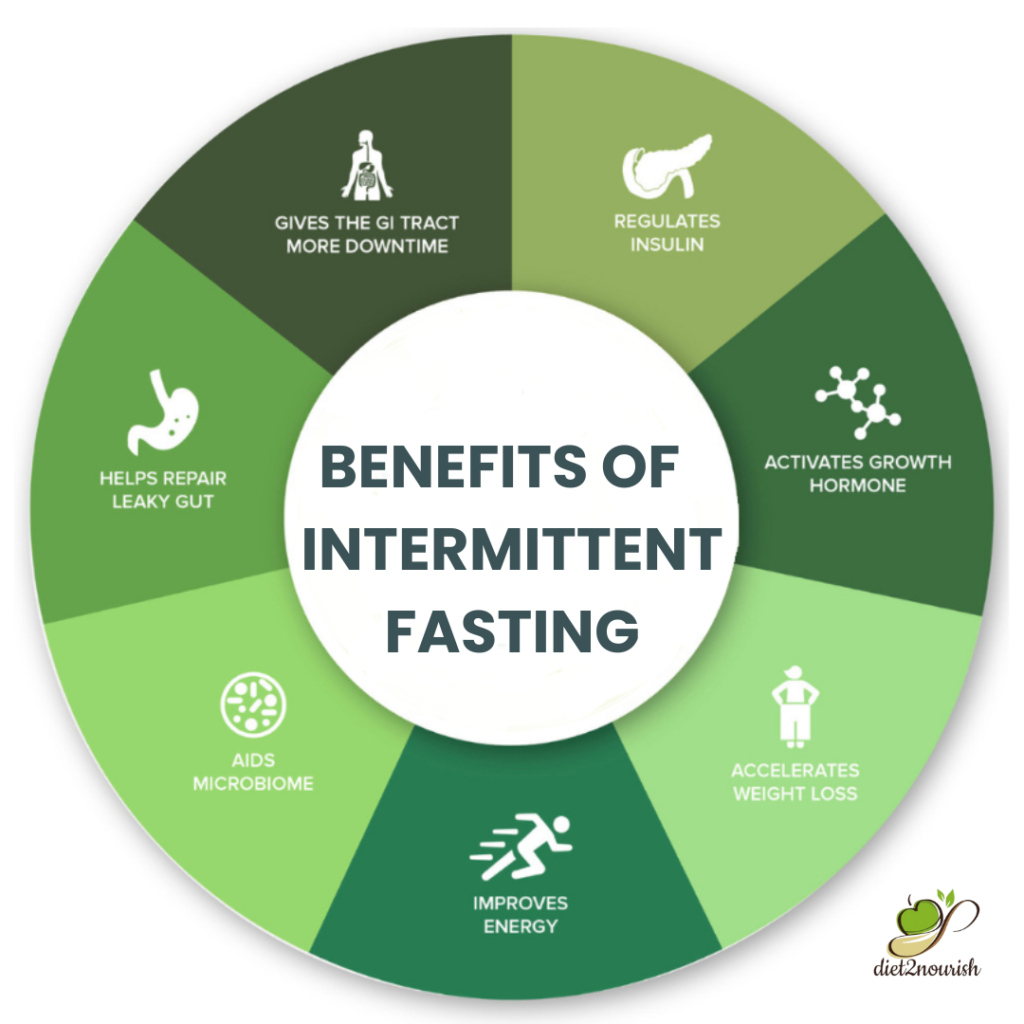
The impact of intermittent fasting are positive and powerful. It also helps you to live a long and healthy life.
- Intermittent Fasting plan minimises insulin resistance. It helps to decrease blood sugar levels by up to 6%. Fasting insulin levels are reduced by up to 31%. This will combat type 2 diabetes.
- This fasting plan works as anti-ageing.
- It enhances brain power.
- The diet plan will help Your cholesterol. It is good for stable blood sugar. This will help your insulin resistance, and blood triglycerides. All of them are risk factors that can lead to heart diseases.
- It will reduce Inflammation.
- It is beneficial to lose weight.
Diet Plan to Lose extra bad fats
By eating meals in a pattern, you can look after your calorie intake. This can lead to weight loss. Intermittent fasting diet plan Indian helps you burn fat and burn calories.
A seven day meal plan for the intermittent fasting schedule:
Intermittent fasting is a unique way of fat loss. It can help create a calorie deficit. This can lead to weight loss and other health perks.
Different methods suit different lifestyles. There are different types of fasting. The difference lies in their fasting and eating windows. So, finding what works best for you is key. Let’s dive into it together!
7 Day Intermittent fasting Diet plan Indian
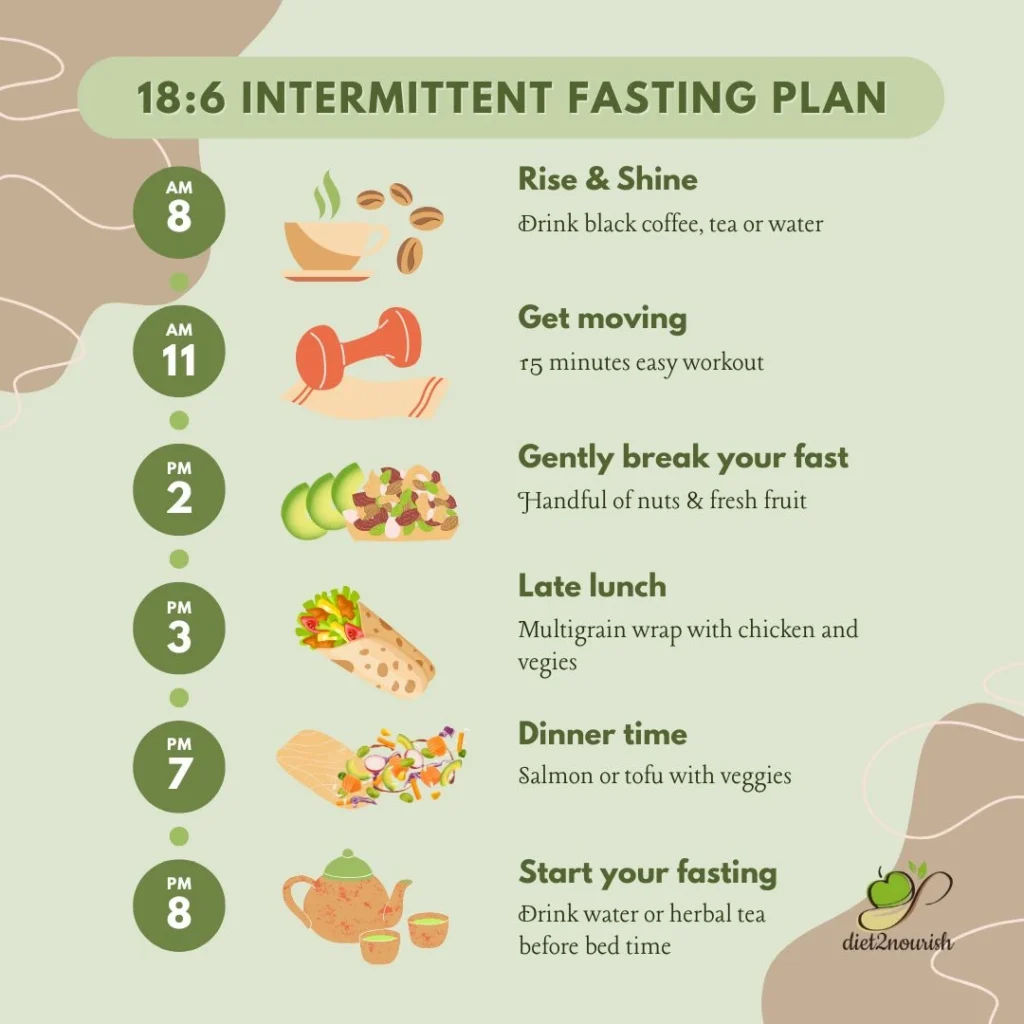
Day 1:
12PM: Rajma curry with brown rice
3PM: A handful of mixed nuts topped with some honey
6PM: Grilled tandoori chicken with salad
Day 2:
12PM: Vegetable upma and a glass of coconut water
3PM: Curd with a spoonful of honey
6PM: Chana masala with roti
Day 3:
12PM: Moong dal khichdi with a bowl of curd
3PM: A medium sized Apple with a spoonful of peanut butter
6PM: Grilled fish with sautéed veggies
Day 4:
12PM: Poha (flattened rice) with lots of veggies
3PM: A bowl of mixed fruits with squeezed lemon juice
6PM: Paneer tikka with salad
Day 5:
12PM: Idli with a bowl of sambar and plain chutney
3PM: Greek yoghourt with a spoonful of honey
6PM: A bowl of Palak with two rotis
Day 6:
12PM: Vegetable dalia made in skimmed milk
3PM: Banana with a spoonful of almond butter
6PM: Dal tadka with brown rice
Day 7:
12PM: Oats idli with coconut chutney and some sambar
3PM: A bowl of mixed fruit and berries with lemon juice
6PM: Grilled fish with sautéed veggies
Best food to include in Intermittent Fasting Diet plan Indian
You can give a try to an Intermittent fasting diet plan Indian. Dt, Priyanka Jaiswal can give you the best diet plan. It will suit your eating habits.
You need to follow it with discipline. It has a simple eating pattern.
During Intermittent fasting diet plan Indian, you should eat good foods. Choose healthy drinks that do not have any fats. The diet plan includes-
1. Fruits:
All fruits are oranges, apples, pears, peaches, bananas, and berries are very good options.
2. Vegetables:
You should go for many green, leafy options as well as broccoli, cucumber, cauliflower, tomato, etc.
3. Whole Grains:
Don’t consume refined wheat. They do not offer many health perks. You can eat buckwheat, barley, oats, rice, etc.
4. Healthy Fats:
Skip all saturated fats. Choose oils made from coconut, olive, avocado, mustard, peanut, sesame, etc.
5. Protein:
You should go for lean protein. This is because they do not have fat. For this, you can eat:
- legumes
- lentils
- Chicken
- Eggs
- Meat
- Eggs
- Pulses
- Nuts
- Seeds
The fasting period
During the fasting period, you can have drinks which do not have calories. A cup of green tea sounds good. You can drink water during your fasting period. These will help you stay hydrated.
When you are in your eating window, you should eat sensibly. Avoid junk food or over-eating during that. All this makes such a diet plan an effective way to lose fat. It is healthy and safe for you.
Intermittent fasting benefits include
- Intermittent Fasting Benefits Include
- weight loss and fat burning
- longer life span
- protection against certain diseases
- improved insulin resistance
- cellular repair
- hormonal balance
You can very easily manage your calorie intake by following Intermittent fasting diet plan. Intermittent fasting India is a safe way to lose weight. It is good for health, and will adopt a healthier lifestyle. This method is safe to follow for adults, it is advisable to consult a dietician before attempting the diet.
This is crucial if you have underlying health conditions.
Intermittent fasting is not good for women who are breastfeeding and pregnant. Such women need calories. Fasting may not be a good choice in this case.
Intermittent fasting diet plan Indian is an effective weight loss plan. you can follow this diet plan and ensure to stay healthy permanently. You can easily prevent chronic disease by following this diet plan. Intermittent fasting has lots of perks. Weight loss is the biggest one. It helps prevent many diseases. You can get good blood sugar levels. Fasting also helps your brain function. More importantly, it can increase both the quality and longevity of your life.
Follow Intermittent fasting diet plan Indian and experience the result. Your diet plan will work for you. The diet plan offers dynamic health benefits and you will surely live a healthy life by following this diet!
Frequently Ask Questions ( FAQ’s)
What should I eat during intermittent fasting in India?
Intermittent fasting diet plan Indian includes fresh fruits and vegetables for daily vitamins and minerals. It is having moderate fat, moderate carbohydrate, and high protein. You can go for whole-grain cereal, millets, and fiber-rich fruits. These will help to lose weight.
What is a good menu for intermittent fasting?
Avocado has highest-calorie fruit while trying to lose weight. Fish and seafood, cruciferous veggies such as Potatoes, Beans and legumes, Probiotics, Berries.
Can I slim my stomach in 7 days by intermittent fasting ?
You can skin your stomach in seven days with an appropriate balanced diet combined with exercise. This diet must be calorie deficient. So that the calories you burn are greater than those you consume.
Moreover, this causes weight loss. Eventually, you’ll notice your body after weightless and nicely reduced body fat.How to lose weight in 7 days?
There are several ways to lose belly weight in seven days. You have to be on a strict calorie-deficit diet plan. In addition to this, you have to avoid some foods. Junk food is really bad for your weight. Sugary foods and drinks are big red flags. So, don’t eat them. With this, you must do cardio or any exercise daily.
Furthermore, consuming fat, burning beverages like herbal tea, green tea, ginger tea, and oolong tea also helps. In addition to this, you can switch to low-fat dairy instead of regular.
Reducing weight in just a week is quite a big goal. Therefore, you require consistency and patience throughout.What is a 5:2 diet plan for weight loss?
It involves eating normally for five days of the week. Then taking 500- 600 calories for two days. In these two days, you eat foods low in calories.
How much fat can you burn with 12 hours intermittent fasting?
Based on the metabolism which may differ or vary for each and every person, good amounts of fat loss can happen with intermittent fasting. Intermittent fasting of 12 hours will work for burning belly fat.
What are some tips to stay motivated while following the intermittent fasting meal plan?
You must set clear and real goals. You can find a fasting schedule that works for you. Add some physical activity in your routine. It will help you lose calories fast. This will keep you motivated. It can help you get quick results.
How can I manage hunger pangs during the fasting window?
For this, you can try snacks without calories. Or when feeling hungry you can drink any low calorie drink. It can be water or herbal tea.
What are some common mistakes to avoid while practising an Indian intermittent fasting diet plan?
It is overeating during the eating window. In addition, not drinking a lot of water is also another mistake. All this will hinder your progress.
When can i see results with the Indian intermittent fasting diet plan?
The Results can vary. But you may start noticing changes in your energy levels and health within a few weeks. This is so, if you are consistently following the plan.
What to eat for good fats in the Indian intermittent fasting diet plan?
In the Indian intermittent fasting diet plan, you can eat:
Almonds
walnuts
flaxseeds
chia seeds
Avocados
Olive oil
coconut oil
ghee
Fatty fish like salmon
mackerel
sardines








